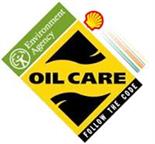
Waste Oil:
Is the old, dirty lubricating oil drained from the sumps or cars, trucks and other engines.
Waste oil poses a significant risk to the health of the environment. Just one pint of oil can contaminate a body of water the size of an Olympic swimming pool and make it un-drinkable.
It is illegal to dump engine oil or pour it down the drain, but an estimated 100,000 tons is unaccounted for each year in the UK alone.
How Is Oil Recycled:
Stage 1:
Used oil arrives at the processing plant
Stage 2:
Sorting takes place on the oils and they are separated out through distillation, to go to separate parts of the plant.
Stage 3:
Chemical pre-treatment helps to break down the hydro carbon chains in the oil meaning It becomes less viscous.
Stage 4:
The oil is dehydrated (water is drawn off) so that the different minerals can be more easily extracted.
Stage 5:
Vacuum distillation is used minerals are separated out according to density and gasoline is recovered as a refinery fuel.
Stage 6:
Further distillation separates out the lube oil, which can then be further refined for use as motor or lubricating oil.
Fascinating Facts:
- There is a network of over 1000 Oil Recycling Banks in the UK able to receive waste engine oil
- Currently less than a third of all waste oil produced by motorists is recycled. That means that around 13 million litres of waste oil are annually lost into the environment
- Only 4% of world's oil pollution is caused through spills at sea
- If the energy in that oil were to be recovered, it could provide enough energy for the annual needs of 1.5 million people, approximately the population of Kent!
- The volume of waste oil from one oil change is enough to form a film over a 4 acre lake